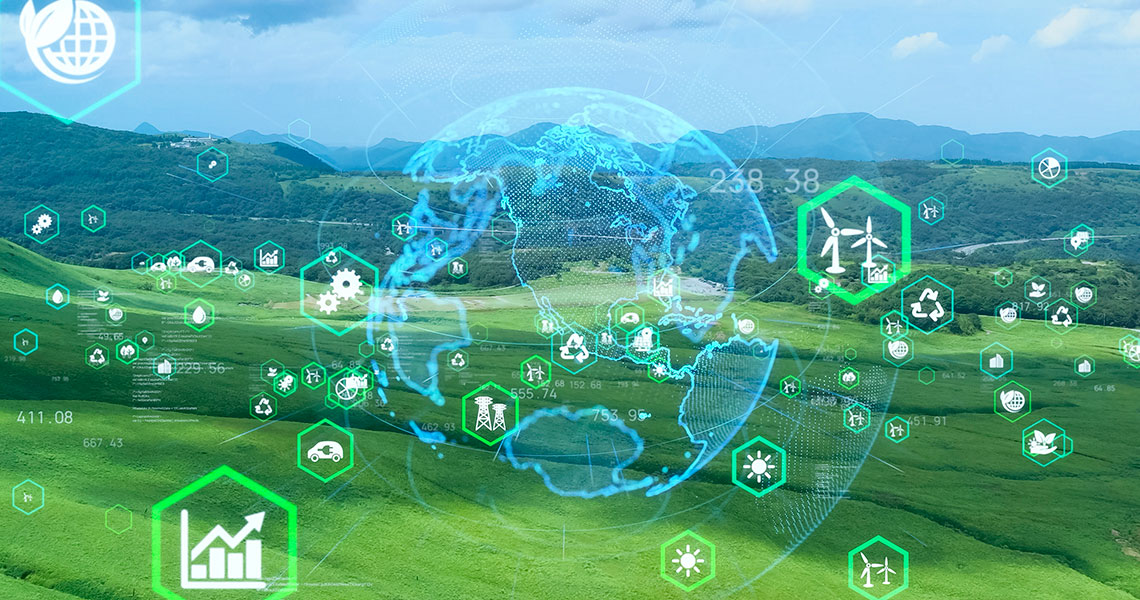As energy organizations scramble to reduce the cost and complexity of achieving cleaner and more decentralized systems, the need for interoperable data and device standards is at a tipping point.
The global energy system is undergoing its most massive innovation cycle since the invention of electricity. Quantum technological leaps in renewable energy, storage, electric vehicles, smart IoT devices, cloud computing and artificial intelligence (AI) are enabling the recreation of our energy system to be cleaner, greener and more efficient and distributed.
In a planet of 8 billion people, massive investments in clean new energy infrastructure are essential to support constantly advancing economies and standards of living. Given that we are also facing an existential climate crisis, these innovations are more than timely.
The wholesale transition and decarbonization of the energy system is one of the greatest challenges of the 21st century. Today’s cleaner and more decentralized grid requires a robust state-of-the-art digital infrastructure to bring the benefits of affordable and accessible clean energy to the entire world.
Data-driven artificial intelligence (AI) and smart IoT devices are just as essential to the new grid as transformers and substations as the mass deployment of energy-as-a-service (EaaS) systems like virtual power plants (VPPs) will now efficiently manage, operate and automate energy generation, distribution and use at scale.
With energy systems going digital, computing technologies now make critical decisions about which electrons end up where. Standards for interoperable components underpin today’s physical grid. As in the consumer electronics industry, interoperability of digital energy systems is now essential for an affordable and efficient digital energy ecosystem. In a world of numerous utilities, device manufacturers and technology providers, this is a daunting task that calls out for open standards.
In response to this demand for secure device and data interoperability, we have formed TEIA, the Trusted Energy Interoperability Alliance, a global security and interoperability standard for the energy industry.
TEIA will offer the entire global energy ecosystem a security and trust model to build interoperable digital-first energy systems that accelerate our path to affordable decarbonization.
Challenges of connecting data and devices from multiple vendors
The wide variety of proprietary hardware and software technologies being deployed in today’s energy operations presents numerous security and interoperability challenges for energy data and IoT devices.
Today, energy companies operate digital applications on top of OT/IT systems strung together from multiple hardware and software vendors. Because the interfaces and data streams of these systems are often proprietary and encrypted, conducting activities such as internal planning, operations, and maintenance requires extensive integration to enable effective data exchange between systems.
Energy companies face a number of issues here. Given the struggles to integrate these proprietary systems to feed whole system data streams, optimizing and operating such components as AI systems and IoT devices into connected systems is made even more difficult.
The additional costs associated with the extra integration work might be passed on to customers. Furthermore, these proprietary systems can result in vendor lock-in, making it more difficult to “mix and match” components when optimizing and upgrading systems, again, which can result in higher costs.
Even more concerning, as data flows from OT systems to IT systems, the difficulties associated with integrating proprietary authentication systems could cause security gaps, leaving systems open to exploits by malicious actors and heightening the risk of unauthorized access and data breaches.
Standardization for security and interoperability
TEIA aims to solve these challenges by creating standards as well as agreed upon formats and protocols for secure and interoperable data communications within the energy system. TEIA specifications will define a security and interoperability architecture at the application layer to support secure collaboration for data and IoT devices and software components used in the digital energy value chain. These will be independent of underlying networking technologies and comply with zero-trust networking principles.
Today’s energy system is built on standardization and the digital systems powering its next phase should be no different. Digital standards will not only benefit companies that provide energy, they will also allow the hardware manufacturers and software providers that support the energy market control their own businesses and sell products that are secure and interoperable.
TEIA welcomes all companies involved in the energy ecosystem to join us in this effort. If you are interested in learning more, please fill out this form. We look forward to hearing from you.




